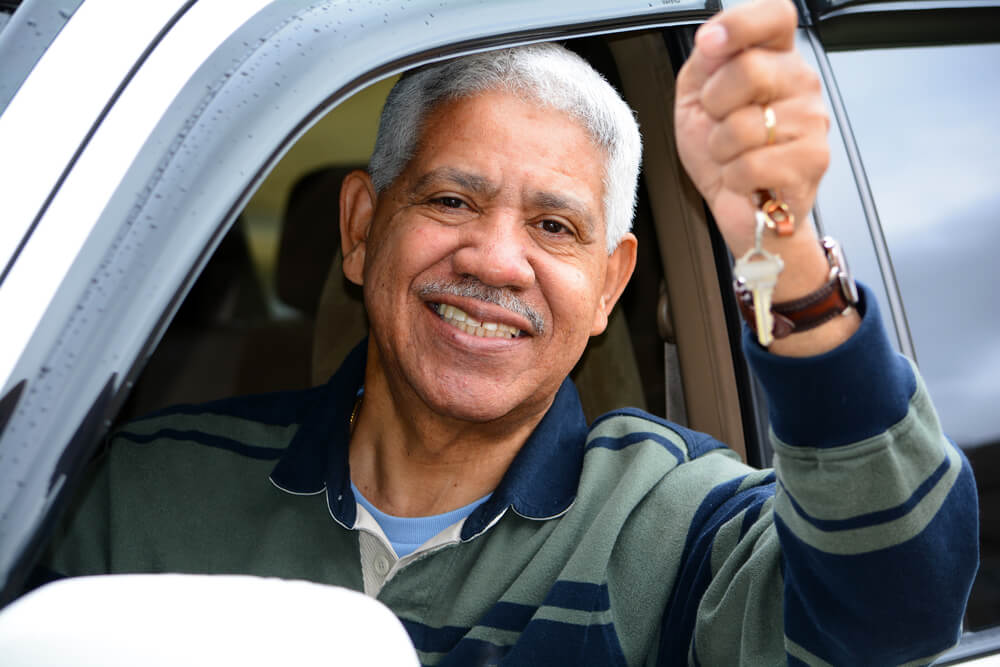
Find the resources you need by using keyword search and clicking enter or by filtering by category.
All Resources
join the community
VERIFIED businesses
The Talk – Aging Parent and Driving
Talking to an aging parent about driving can be a difficult conversation. Most drivers love the independence driving brings, so giving up that freedom is difficult to accept. Plus, most adults think they are safe drivers; they have lots of driving experience and wear seat belts. Unfortunately, driving may be less safe for seniors because the risk of a fatality collision increases with age. In fact, in 2021, 19% of fatal crashes involved drivers 65+.
Is aging the only factor when it comes to driving?
The fact is that human beings age at different rates. Some drivers are as safe at 80 as 40, while others should stop driving by 65. Therefore, age is not the only factor when determining driving capabilities. Driving is a complex task. It involves people using both their physical and cognitive abilities to drive. Vision, hearing, motor skills, cognitive reaction time, and medications can all affect a person’s ability to drive.
What are some unsafe driving signs in an aging parent?
- Nervous or fear while driving
- Exhaustion after driving
- Difficulty interpreting and watching traffic signs
- Confusing the gas pedal and the brake pedal
- Getting lost, which was not a previous issue
- Backing up after missing a highway exit
- Changing lanes abruptly and without looking
- Stopping at a green light while running red lights without knowing it
- Leaving the turn signal on indefinitely
- People do not want to drive with you
- Car accidents or close calls
- Speeding or driving too slow
- Having problems with hearing, eyesight, or memory loss
- Diagnosed with a medical condition such as dementia, Alzheimer’s disease, arthritis, cataracts, macular degeneration, diabetes, glaucoma, muscular degeneration, Parkinson’s disease, sleep apnea, or had a stroke.
How do I have the driving conversation?
Many grown children with elderly parents face this dilemma, and navigating the conversation can be difficult. Therefore, plan the conversation. The conversation may need to happen in stages. Not driving is a difficult decision since the aging parent feels a loss of independence while grappling with the fears that aging brings. Here are some tips:
- Find a good time to talk. Have the conversation when the person is relaxed, alert, and comfortable in a familiar setting. Don’t have the conversation when the person is tired, hungry, or irritable.
- Figure out the right approach for the conversation. Would it be best to have a one-on-one discussion with various family members and friends, or would a small group (six or fewer people) be okay? You don’t want the person to feel overwhelmed.
- Sometimes, the message needs to come from someone with authority, so maybe have the conversation during a doctor’s appointment or ask the doctor to write a report about the issue.
- Provide reasons for this decision. Explain why you suggest the person stop driving and why it’s dangerous.
What are some other things to consider?
- Your parent may be in denial about their unsafe driving habits. Therefore, gently give examples of what prompted this discussion. Avoid saying they are a dangerous driver or demand they stop driving now. Instead, focus on the facts and discuss first-hand experiences, such as getting lost, accidents, or near incidents. Discuss safety for your parent as well as safety for innocent bystanders.
- Discuss options, for example, no driving or driving limitations, such as no night-time driving.
- Be encouraging and supportive and offer to help during this stage of their life.
- When approaching someone with a problem, it’s best to provide some solutions, too. Offer alternative transportation options such as public transportation, private ride services (caregiver, taxi, Uber, or Lyft), food delivery, or setting up a schedule to run errands on a particular day.
- Discuss third-party driving classes or hiring a professional to assess a person’s driving skills, which can help sway the decision.
Giving up driving is a big decision. The topic must be held with compassion and sympathy but firm, too.
STAGES is here to educate people on how to navigate difficult conversations with aging loved ones.
top verified companies
@2024 STAGES FOR LIFE, LLC. Designed Intentionally by MOK
information
sales@stagesforlife.com
Articles
Government
verified businesses
Medical Services
Get Verified
Contact
Privacy Policy
Terms and Conditions
Downsizing
Housing and Care Services
Non-Profit
Professional Services
Medical Services
Professional Services
Non-Profit
Housing & Care Services
Government
Downsizing
Events
Newsletter